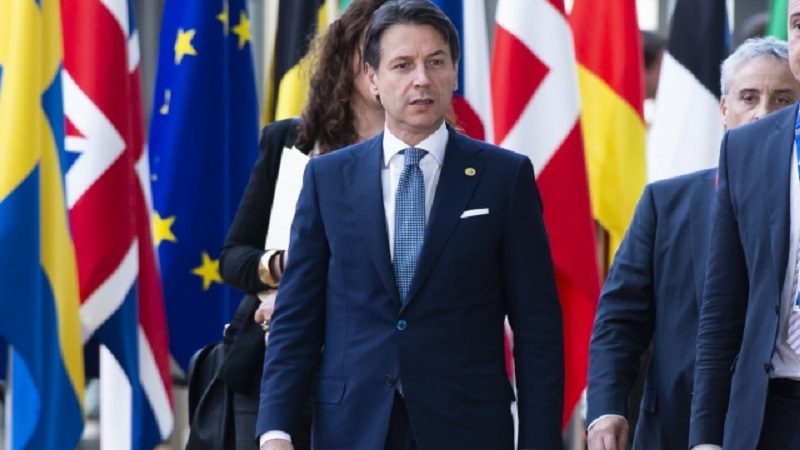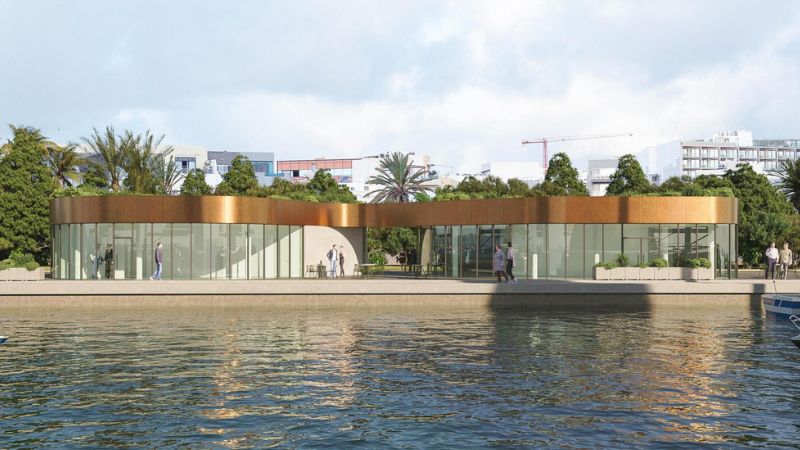Prime Minister Joseph Muscat did not stop to explain Malta’s position on migration to the international press during his entrance at the European Council Summit with a major focus on migration, while major European Leaders spoke about migration and mentioning Malta in their assessment of the situation.
Muscat arrived later than most European leaders – French President Emmanuel Macron, German Chancellor Angela Merkel, Dutch Prime Minister Mark Rutte, Italian Prime Minister Giuseppe Conte, Irish Prime Minister Leo Varadkar, as well as European Parliament President Antonio Tajani and European Commission President Jean-Claude Juncker – all arrived before Muscat and stopped to discuss the recent spat between Malta and Italy on migration.
In terms of what the summit aimed to achieve, they all said solutions had to be based on responsibility and solidarity. They warned the ‘migration crisis’ should not be blown out of proportion as the numbers arriving in Europe were a fraction of what they were in previous years.
The referred to the summit as a “defining moment” for the EU.
Solutions were working, they said, hinting that the ‘crisis’ was being blown out of proportion for political purposes. The Prime Minister of Ireland, which is one of the countries taking in migrants from the vessel MV Lifeline that entered the Maltese port on Wednesday evening after spending six days at sea, said:
“There is no migration crisis; there is a political crisis”.
Italy’s Interior Minister Matteo Salvini has been accused of inflating the problem for political gain. Elected on an anti-immigration platform, Salvini exploited the drama of hundreds of men, women and children stranded at sea without a port of call.
Italy was unrelenting in its introductory comments to the press ahead of the summit. Prime Minister Giuseppe Conte said: “Today is an important day. We need facts, not words. We need action, not words”.
When asked what would happen if EU leaders did not agree with this proposal, Conte said: “I don’t want to consider this possibility. If they don’t agree, I don’t want to think of the consequences”.
Italy’s proposal, called ‘European Multi-Level Strategy for Migration‘, would completely override the Dublin agreement and demands EU member states accept their share of economic migrants entering through Italian shores or face a reduction of EU money. The document includes 10 points that Rome suggested would help manage the influx of migrants coming to the EU.
Yet, European leaders seemed to toe the same line. The common position expressed is that the EU needed to strengthen its control of its borders, and once smaller numbers were achieved then efforts on burden sharing would be more successful.
Mark Rutte, Prime Minister of The Netherlands which is also taking in migrants from the MV Lifeline, said: “When you’re able to tackle migration with better control, then it is easier to agree with other EU leaders on the second step – how to share the burden. With better control the numbers are smaller.”
He suggested the type of agreement reached with Turkey to control migration numbers would make the situation more controllable. “On this there is a broad sense of agreement,” he said.
Federica Mogherini, High Representative of the European Union for Foreign Affairs and Security Policy, said solutions were working: “The numbers are a fraction of what they were before”.
Work with the Libyan coastguard must continue, she said: “There’s more we can do in this field if Member States are willing”.
She said the Trust Fund for Africa had shown its success through the decrease in numbers, and again said its positive results could continue if Member States supported it. The Irish Prime Minister in fact said the country would be tripling its contribution to the fund.
Mogherini also said disembarkation also needed to be addressed. “We need to shape a framework that is sustainable, but with full respect for human rights”.
In a separate press conference, Council President Donald Tusk had strong words for the outcome of the migration council.
The way forward was full control of the EU external borders and setting up regional disembarkation platforms outside the EU – a stand explicitly echoed by the UNHCR, in a letter addressed to him, Mr Tusk said.
He pointed out that migration had been stemmed by 96% since 2015, through co-operation and by stopping “illegal” migration outside the EU.
The alternative solution would be a “chaotic closure” of EU borders and conflict within the EU. “Some may think I am too tough but trust me, if we don’t agree on them, then you will see some really tough proposals from some really tough guys”, he added.
Hours before the summit, Chancellor Angela Merkel told the German Parliament that the issue of migration could become “the make-or-break” for the EU.
She called for refugee harbouring agreements with African countries similar to those the EU has with Turkey and pointed out that, with falling migrant numbers, the tighter immigration controls of before 2015 must be re-established.
“Either we manage it, so others in Africa believe that we are guided by values and believe in multilateralism, not unilateralism, or nobody will believe any longer in the system of values that has made us strong. That’s why it’s so important.”
European Parliament President Antonio Tajani said migration was Europe’s main problem. “We need to strengthen frontiers and we need need a strategy for Libya and Africa”. He called for solidarity and the need to reform the Dublin regulations.














